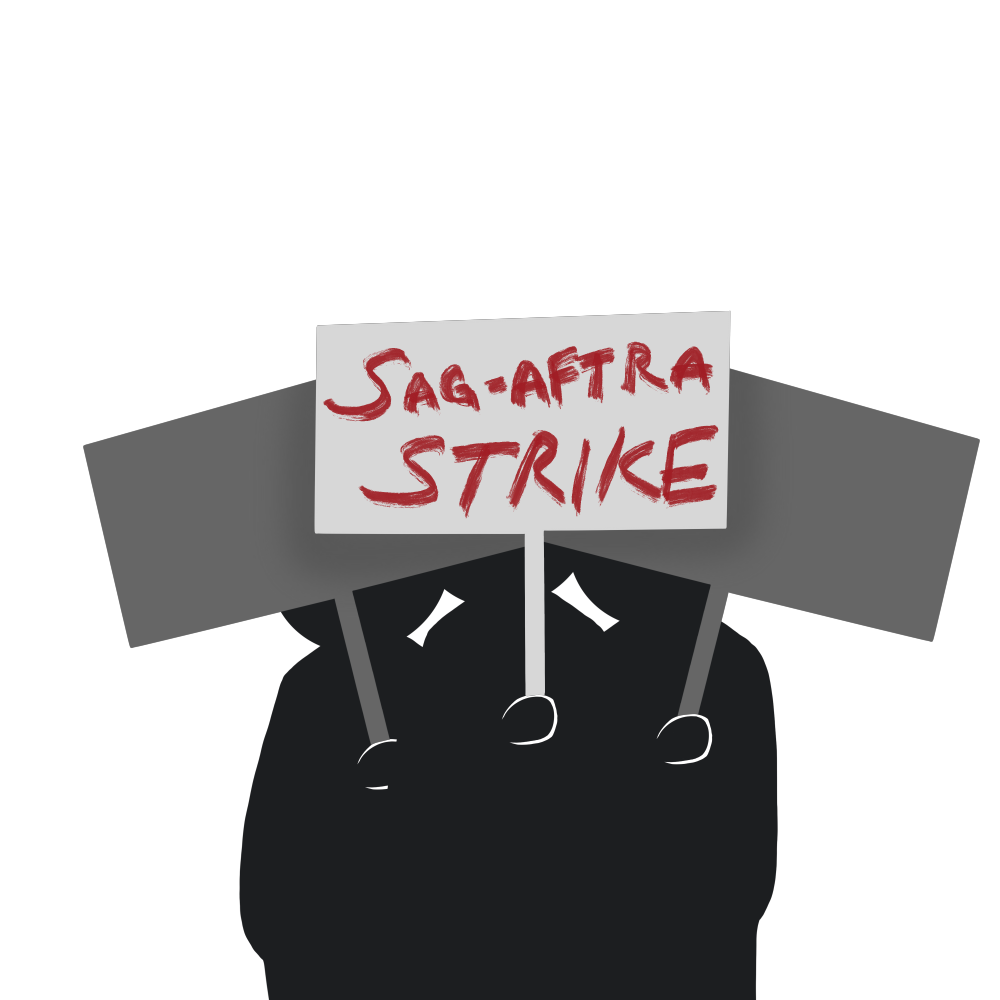Friday, Sep. 15 marks nine weeks since the Screen Actors Guild and American Federation of Television and Radio Artists (SAG-AFTRA) joined the Writers Guild of America (WGA) on the picket lines in the first dual-strike in Hollywood since the 60s. SAG-AFTRA joined the strike after failed negotiations with the Alliance of Motion Picture and Television Producers (AMPTP).
They are on strike for the preservation of their art and professions during a period of drastic changes to media. The rise of streaming and decline of cable television has eroded the residuals income SAG-AFTRA fought for 80 years ago, while the recent development of generative artificial intelligence (GAI) threatens actors’ job security without regulation.
The union demands fair and livable wages for its members. They demand for participation in streaming revenue, which actors don’t currently earn anything from. They also demand an 11% increase for the rates of background actors.
It’s a common misconception that actors are typically rich and famous. In reality only a small percentage of actors make such lucrative earnings; most actors are stand-ins, stunt performers or background actors who are essential to productions, yet aren’t typically named in the credits. SAG-AFTRA background actors typically make between $34,000 and $63,000; about half are making less than a livable wage — $44,000 in Los Angeles. Over the previous contract period, background actor rates only increased 2.5% in 2020 and 2021 and 3% in 2022. Meanwhile, inflation caused consumer prices to increase 5.4%, 8.5%, and 3.2% each respective year. Essentially, when adjusted for inflation, background actors were making less with each passing year. Without an 11% increase this year, background actors will still be making less in 2026 than in 2020. Background actors are more than crowds added for the sake of realism; they are an integral part of creating mood and atmosphere in productions and deserve to be compensated as such.
SAG-AFTRA also wants protection for union members against the abuse of GAI. The lack of current regulations surrounding GAI provides an opportunity for exploitation. SAG-AFTRA demands provisions so that actors must give informed consent and be fairly compensated when GAI is used to create “digital replicas” or alter performances, ensuring the ethical use of GAI in the future and protection of their professions.
Exploitative practices like this would not only ruin the livelihood of film and television performers, but the livelihoods of other professionals — costume designers, make-up artists, set designers -– and eventually film as an art itself. GAI works by taking existing data, whether that be text, images or video, and through an algorithm generates new data. However, the scope of GAI’s ability will always be limited by the data it’s trained on. It should be used as a tool to enhance human creativity, not replace it.
In my opinion, what makes films and television so captivating is their ability to take an audience through a story that is removed from our day to day life yet also grounded in the human experiences and ideas of their times. When you take away meaningful human input from any art, you take away not only the possibility for innovation but that aspect of relatability. I think the best way to maintain a thriving entertainment industry is to put human creativity first. Creating a production environment where performers are guaranteed to be valued, appropriately compensated, and protected is essential to that.
Despite the importance of SAG-AFTRA’s demands to the future of film and television, AMPTP shows no intention of returning to the negotiation table soon. Disney CEO Bob Iger claimed that the writers and actors’ demands for increased wages were “just not realistic,” yet the Walt Disney Company made $4 billion in operating income from Disney Media and Entertainment Distribution alone in 2022.
As the strike drags on in the coming weeks, we’ll continue to see many delays and cancellations of upcoming films and new seasons for television series, but bear in mind that this temporary halt in productions is in an attempt to protect the livelihood of 160,000 professionals in entertainment as well as the art of film as a whole.





















